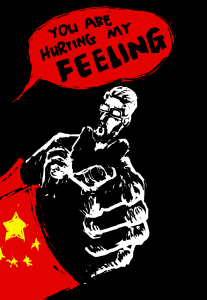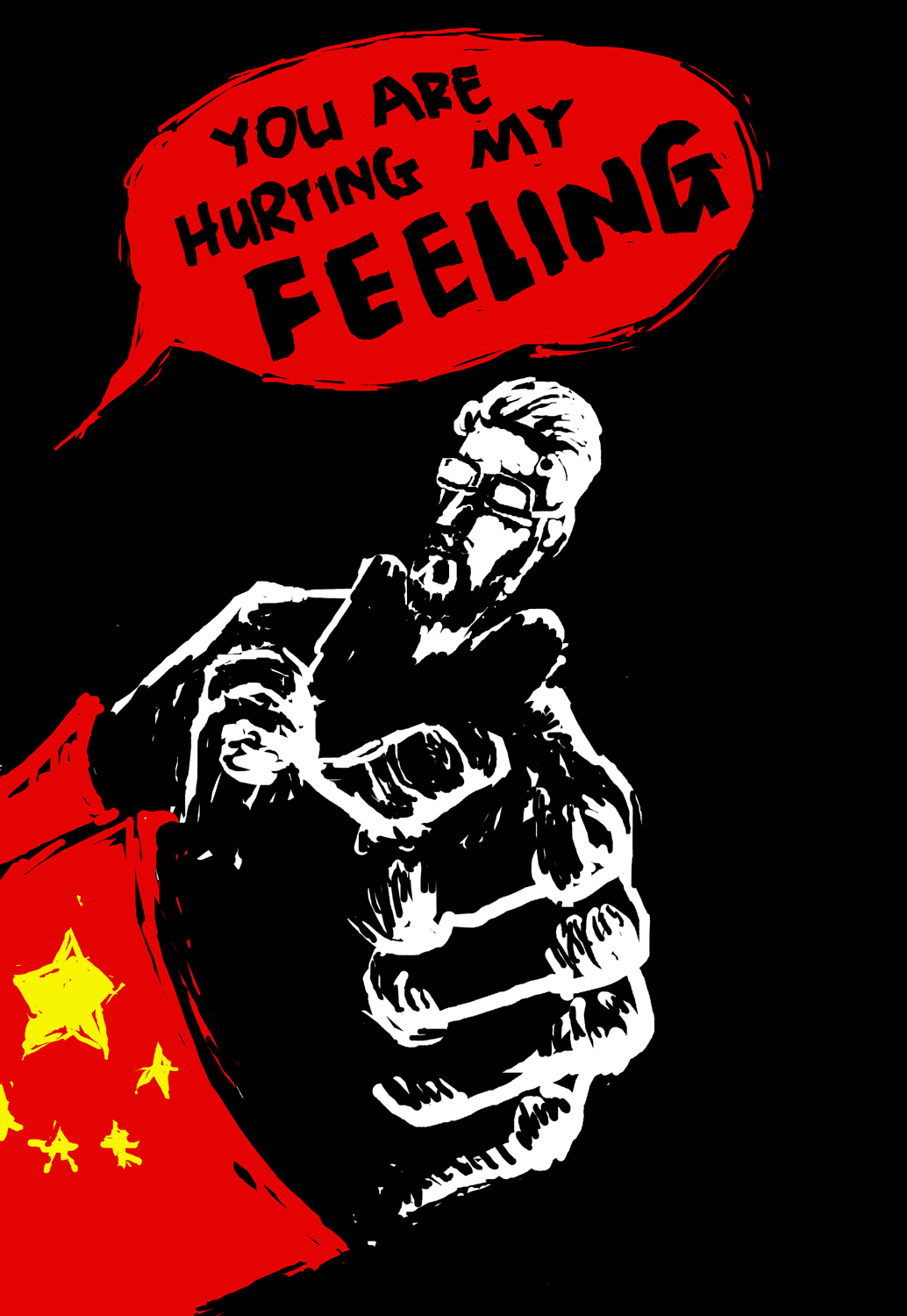The Word of the Week comes from the Grass-Mud Horse Lexicon, a glossary of terms created by Chinese netizens or encountered in online political discussions. These are the words of China’s online “resistance discourse,” used to mock and subvert the official language around censorship and political correctness.
shānghài Zhōngguórén de gǎnqíng 伤害中国人民的感情

China squeezes a confession out of Peter Dahlin. (Artist: Badiucao 巴丢草)
Invocation used by Chinese authorities when another country, organization, or individual offends Party officials. Also heard in Swedish activist Peter Dahlin’s televised confession in January 2016, which colleagues said appeared to be coerced.
Meeting with the Dalai Lama is a classic way to “hurt the feelings of the Chinese people.” After President Obama met with the Dalai Lama in July 2011, the People’s Daily complained, “To host the Dalai Lama at the same time China was celebrating the 60th anniversary of Tibet’s liberation hurt the feelings of all Chinese people, including the feelings of Tibetans.”
Netizens may repeat this stock complaint sardonically, or turn it on its head and disavow damage to their own feelings:
Xiansu1981 (@限速1981): To those crooked kernels [foreigners] on CCTV claiming they have hurt the feelings of the Chinese people, let me tell you, I’m a member of the Chinese people, and my feelings haven’t been hurt by you in the least. The feelings you’ve really hurt belong to the people of Zhao. (January 20, 2016)
那些在电视上声称伤害了中国人民的感情的歪果仁,我对你讲哈,我是中国人民的一员,我的感情并没有被你伤害。你所伤害的感情应该是赵国人的。[Chinese]
In 2008, blogger “FangK” searched through the electronic archives of the People’s Daily between 1946 and 2006 and found that 19 countries and organizations had been accused of hurting the feelings of the Chinese people in its pages. Victor Mair considered the inverse in 2011, comparing the frequency of hurt Chinese feelings to those of Russians, Japanese, Jews, and other national and ethnic groups.
(In 2015, in response to anger on Chinese social media, Taiwan-born singer Chou Tzu-yu apologized for holding the island’s Republic of China flag on South Korean TV. Amid speculation that Chou had been forced to apologize by her management, Taiwan’s president-elect Tsai Ing-wen said that the incident “has hurt the feelings of all Taiwan’s people.”)
Columnist Kai Pan calls the hurt feelings accusation “inherently idiotic,” based on immature assumptions about the entirety of Chinese society.
No matter how pained the Chinese people’s feelings, international relations still manage to stay intact. When democracy activist Hu Jia was awarded the EU Sakharov Prize in 2008, the Chinese ambassador to Brussels wrote, “If the European Parliament should award this prize to Hu Jia, that would inevitably hurt the Chinese people’s feelings once again and bring serious damage to China-EU relations.” To date, China-EU relations are still highly functional.
Can’t get enough of subversive Chinese netspeak? Check out our latest ebook, “Decoding the Chinese Internet: A Glossary of Political Slang.” Includes dozens of new terms and classic catchphrases, presented in a new, image-rich format. Available for pay-what-you-want (including nothing). All proceeds support CDT.








